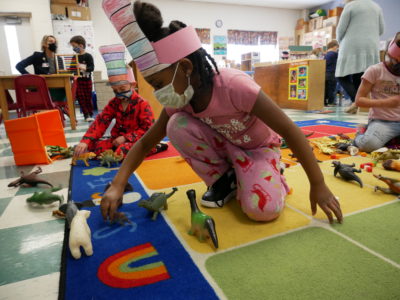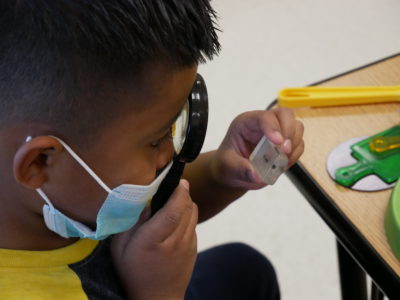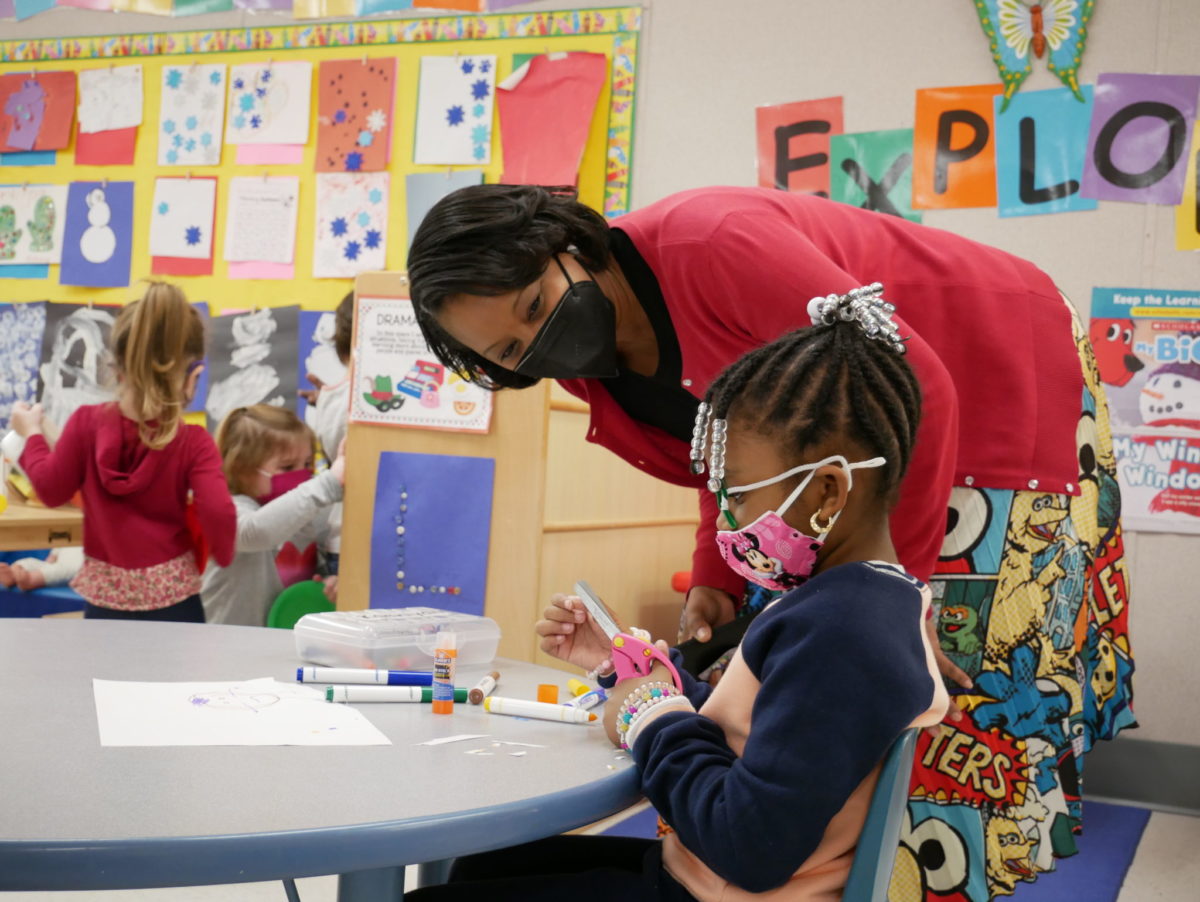
|
|
“If it was not for the governor, we wouldn’t have made it.”
The early care and education (ECE) industry needed financial support and respect long before the COVID-19 pandemic. The impacts of COVID-19 not only forced many closures and reduced access to child care for families across the board, but the essentiality of the industry also became evident.
In an industry historically plagued with limited financial resources and perpetual staffing issues, the circumstances of operating safely during the pandemic exacerbated the long-standing challenges and increased stressors faced by both public and private programs. Further, the heightened focus on ECE, as evidenced in operational grants from the government and daily adulation of early educators in the news and by families, highlighted what has been lacking for years.
The government and society as a whole have responded to the challenges faced in the early care and education industry during the pandemic. North Carolina administrators, directors, and teachers who participated in a recent study highlight recommendations for revitalizing and re-envisioning an ailing industry and for increasing respect for this essential and hazardous profession.
Those working within the early care and education field providing direct care to young children, training and education, and advocacy have long cried out about the importance of early educators. In addition to providing professional development, a blueprint for increasing wages for educators, and recommendations for education and training, professional organizations like the National Association for the Education of Young Children (NAEYC) and state advocacy agencies like Child Care Services Association and NC Early Education Coalition (NCEEC) spend most of their time and energy working to convince policymakers and the general public about the crucial importance of the early years. Early educators are essential workers and need financial support to make adequate wages, have health benefits, and access training and support to do their jobs.
Despite the newfound recognition of the importance of early educators, considering the inherent stress of being an early educator and the possible challenges in maintaining a healthy lifestyle, it makes sense to explore exactly how the COVID-19 pandemic impacted the perceived stress and wellness of early educators from multiple perspectives, including administrators/supervisors and early childhood educators. A group of North Carolina early childhood researchers recently surveyed and interviewed this population.
Participants were more than 100 early childhood educators (birth through third-grade teachers) and administrators/supervisors from 34 North Carolina counties. These participants answered role-specific questionnaires about their professional experience, training, and perceived stress during the COVID-19 pandemic. Based on survey responses and preliminary analysis of 15 interviews, many early educators and administrators are feeling underappreciated. Survey responses showed that both groups experienced moments of stress, yet not continuously.
Interview responses provide a more detailed understanding of the early educators’ perspectives. When questioned on any stressful moments or duties associated with their professional role, the majority of the responses dealt with issues relating to student behavioral challenges; student academic struggles; balancing teaching, administrative work, and professional collaboration; and maintaining strong parent-teacher relationships and communication.
Additionally, balancing the various demands such as following state guidelines, grading, home visits, meetings, car duty, and more were typical before COVID-19. Unprecedented demands and expectations appeared during COVID-19, including shifting work demands and challenges in areas like technology device management and use, changing approaches to teaching, delivery of class supplies and information to children at home, the well-being of families and students as access to community resources declined, and extended work hours to communicate with children’s families.
For agencies and schools that remained open, state mandates concerning health care practices (e.g., temperature-taking, sanitizing, and reorganizing staff/class placement) became more challenging. Several work-related concerns also coincide with the shifts experienced in work duties and expectations during COVID-19.
Due to the extreme shift away from in-person instruction and access to peer socialization, most participants expressed concern about students’ loss of access to academic and community-based resources provided within a physical school or agency building. While a few individuals shared concerns over health risks and the logistics of returning to in-person work, students’ access to in-person learning, socialization, and resources dominated responses.
Participants described emotions concerning work-related stress as both positive and negative. Positive emotions felt were “little sadness” and “feeling fortunate to have access to knowledge and training.” Positively associated actions, such as communicating with co-workers, were also shared. One participant described how a positive interaction helped her combat her own negative emotions through sharing emotions and stress with others in her environment.
Others expressed increasing negative emotions, including feeling overwhelmed, anxious, unfocused when exhausted, and feeling emotional and raw when feeling out of control. One participant also mentioned the overspill of their emotion to their own family members and its toll on the entire family unit.
The most considerable difference in work-related concerns between educators and administrators was “staffing concerns” related to teachers’ placement, the number of staff available or being short-staffed, and the support and health of staff during the unpredictable pandemic. Directors and administrators felt more of the burden for these areas. One director shared the many challenges she and her center are experiencing.
“(With) staffing, the risk is not worth the money. They just wanted out of the field because they are not getting paid enough to be what they consider at-risk, and so I have had a lot of staff turnover here in the last month … and so trying to hire someone in the middle of a pandemic is tricky because, I am sure you know, the hiring time, by the time you get the hiring qualifications back … it could take up to 2-3 weeks … Continuity of care, that has been my biggest problem, trying to get quality people in this industry … nothing is simple right now.”
A quote from one center director sums the mixed messages and lack of support many are feeling:
“Everything that we ever heard, back since March (2020), is ‘child care is essential, child care is essential,’ and yet there’s not enough funds to fund it to where we are of the same caliber as any type of school teacher. Day in and day out, early childhood is the … stepchild of the educational system and I don’t feel like anything is going to change until you have lawmakers that can really go in and show the importance … ”
Now, more than ever, it is important for us to continue to take steps to support the early care and education field to become truly essential, respected, and well-compensated. As we work through reimagining the field, policies that secure this purpose with a bold, determined vision are critical.










